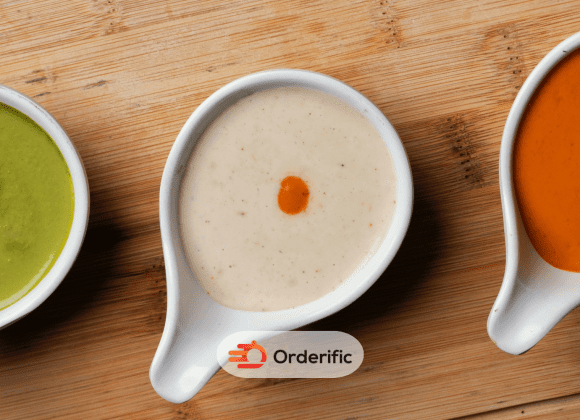Introduction
In the dynamic realm of event planning, professionals constantly seek new ways to streamline their operations with software customization and enhance attendee engagement. One such transformative tool is event management software, a robust platform tailored to every event planner’s unique needs. This technology simplifies event registration and harbors various features for efficient event marketing. With the power to customize and integrate different aspects of their event, from check-in to attendee engagement strategies, event organizers can host successful hybrid events, virtual events, or in-person gatherings. A future event powered by such technology ensures a seamless experience for all event attendees.
Top 20 Features That A Good Event Management Software Must Have
1. Robust Automated Scheduling
A robust, automated scheduling feature, integral to any top-notch event management software, revolutionizes the event planning process. Event planners can effortlessly manage and allocate resources, reducing time spent on mundane tasks and enabling them to focus on creating a successful event that resonates with attendees. This functionality proves crucial in planning hybrid events, where scheduling complexities involve both physical and virtual event components.
The feature aligns with the needs of the event organizer, offering the flexibility to customize schedules to the minutest detail. This results in a smooth event registration process, accelerating check-ins and enhancing attendee engagement right from the get-go. The software’s scheduling feature allows event professionals to plan future events accurately, efficiently juggling multiple agendas and ensuring each event leaves a lasting impact.
Event management software’s powerful scheduling feature ensures that every attendee, every feature, and every minute of the event is accounted for. It streamlines the responsibilities of event planners, helping them navigate the intricacies of event planning. From managing event registration to devising innovative event marketing strategies, the software serves as a reliable partner.
2. Seamless Registration And Ticketing
The second vital feature of any superior event management software is the ability to handle seamless registration and ticketing. This feature is a game-changer for event planners, providing a smooth experience for attendees from their first touchpoint with the event. Event professionals can customize the registration process to their requirements, tailoring it to the specific needs of their hybrid events, virtual events, or in-person gatherings. This feature streamlines operations, freeing event managers to concentrate on crafting engaging content and innovative event marketing strategies.
Effective event management software automates ticketing, making the experience more efficient for both event organizers and attendees. This functionality can greatly enhance attendee engagement, as a smooth registration process leaves a positive first impression, potentially increasing the likelihood of future event participation by attendees.
In terms of event planning, this feature reduces the heavy lifting, automating a process that could otherwise be extremely time-consuming and prone to error. The inclusion of social tables can further enhance the experience, allowing attendees to interact with each other and fostering a sense of community within the event.
3. Customizable Data And Reporting
The power of data is undeniable in the realm of event planning. A high-quality event management software offers customizable data and reporting, a feature that every event planner needs. This tool empowers event managers by providing them with the necessary insights to enhance event marketing strategies, improve attendee engagement, and ensure a successful event.
Customizable data and reporting in the event software serve as the backbone for informed decision making. From the event registration process to attendee check-ins, every interaction provides valuable data for the event planners. By interpreting this data, event professionals can identify trends, measure the success of their marketing strategies, and make informed decisions for future events.
A significant benefit of this feature is the ability to track attendee engagement. Event organizers can monitor attendee interaction throughout the event, from their initial registration to their level of participation in a virtual event or hybrid events. Analyzing this information allows event planners to tailor their strategies, creating a unique and engaging experience for event attendees.
Furthermore, this feature integrates seamlessly with the event app, enabling planners to share real-time updates and use social tables effectively. The software’s data and reporting capabilities make it an indispensable tool for event management, ensuring that each decision made contributes to the event’s overall success.
4. Seamless Email Marketing Integration
Seamless Email Marketing Integration is a must-have feature of any solid event management software. With this feature, event planners can effortlessly integrate their event marketing strategies directly within the software. This functionality empowers event professionals to craft engaging emails, personalize event invitations, and boost their event’s reach, all from a single platform. Moreover, it allows for real-time tracking of email open rates and click-through rates, providing planners with valuable insights into the effectiveness of their event marketing strategies.
Moreover, the integration of email marketing into the event management software streamlines the process of event registration. Automated email confirmations sent upon successful registration enhance the attendee experience and reduce the workload for event planners.
In the context of hybrid events or virtual events, seamless email marketing integration becomes even more crucial. It aids in increasing attendee engagement by delivering timely event updates, reminders, and interactive content directly to the attendees.
5. Intuitive Website And Registration Page Builder
An intuitive website and registration page builder is an essential feature of top-tier event management software. This tool allows event planners to create custom, user-friendly websites and registration pages in line with their unique event marketing needs. With this feature, event professionals can design a visually appealing and easy-to-navigate platform that not only attracts potential attendees but also facilitates a smooth registration process. The ability to incorporate brand elements and tailor content on these pages further enhances attendee engagement, cultivating a personalized event experience.
This feature is particularly crucial for hybrid or virtual events, where the website and registration page serve as the primary touchpoints for attendees. By utilizing an intuitive website and registration page builder, event organizers can ensure their online presence is as polished and effective as their in-person experience. Ultimately, this tool plays a crucial role in shaping the attendee’s first impression, setting the tone for their entire event journey, and impacting the success of future events.
6. Comprehensive Sponsor And Exhibitor Management
A comprehensive sponsor and exhibitor management feature is a non-negotiable asset for high-quality event management software. It facilitates effective collaboration between event organizers and sponsors or exhibitors, ensuring all parties are aligned and informed. This feature also allows for the customization of sponsorship packages and exhibition spaces, improving overall attendee engagement and elevating the event experience. The ability to manage sponsor and exhibitor details seamlessly contributes significantly to the successful execution of hybrid, virtual, and in-person events.
7. End-To-End Venue Sourcing And Management
The end-to-end venue sourcing and management feature is a pivotal component of any superior event management software, allowing for smooth location scouting and management. This feature simplifies the task of securing and managing suitable venues for hybrid or in-person events, enhancing both the event organizer’s process and the attendee experience. It offers the flexibility to customize venue layouts, catering to the unique needs of each event, thus ensuring a seamless, efficient event setup.
8. Intuitive Guest Management Capabilities
Intuitive guest management is an indispensable feature of effective event management software. It offers a streamlined approach for event organizers to manage attendees effectively, enhancing the overall event experience. From initial registration to post-event communication, this feature ensures an organized, personalized, and engaging interaction for each participant. It’s particularly beneficial during hybrid and virtual events where maintaining attendee engagement is paramount.
9. On-Demand Onsite Badge Printing

On-demand onsite badge printing is a valuable feature of proficient event management software. It streamlines the check-in process by enabling instant badge printing, fostering a positive first impression for attendees. This feature not only enhances efficiency but also offers customization options, allowing event organizers to incorporate unique branding elements into their badges. It’s of particular importance in hybrid and in-person events, facilitating smooth registration and contributing to a seamless event experience.
10. Engagement-Driving Mobile Event Apps
Engagement-driving mobile event apps are a must-have feature for successful event management software. These apps enhance attendee interaction and provide real-time updates, contributing to a seamless event experience. Especially useful in hybrid or virtual events, mobile apps facilitate networking, personalization and content sharing, ensuring attendees remain engaged and informed throughout the event. This feature proves invaluable in fostering a strong attendee experience, a key determinant of event success.
11. Built-In Event Gamification And Polling
Built-in event gamification and polling features can significantly augment attendee engagement, transforming an ordinary event into an interactive experience. Gamification entails incorporating game mechanics into the event to motivate participation, while polling can offer real-time feedback. These features not only elevate attendee interaction but also provide valuable insights into attendee preferences, enabling personalized event planning. Especially beneficial for virtual and hybrid events, these features can keep the audience engaged throughout, ensuring the event’s overall success.
12. Robust Event Marketing Automation
Robust event marketing automation is a key component of superior event management software. This tool automates marketing tasks, streamlining the process and freeing event professionals to focus on other aspects of the event. It aids in reaching a wider audience, personalizing communication, and tracking the effectiveness of marketing strategies. It can enhance attendee engagement, contribute to successful event executions, and provide valuable insights for future events.
13. Comprehensive Speaker & Agenda Management
Comprehensive speaker and agenda management is an essential feature of robust event management software. This tool allows for efficient coordination of speakers and structuring of event agenda, ensuring seamless flow of activities. It enables event planners to allocate time slots, manage speaker profiles, and share real-time updates with attendees. Especially crucial for virtual and hybrid events, this feature enhances attendee engagement by providing a clear, organized event roadmap.
14. 360 Exhibitor Management Software
The 360 Exhibitor Management Software is a critical feature in superior event management software. It provides a comprehensive platform for event organizers to manage exhibitor details, including booth allocations, payment tracking, and real-time updates. This tool ensures seamless coordination, enhancing the exhibitor experience, and thereby, boosting overall event success.
15. Built-In Networking & Matchmaking
Built-in networking and matchmaking is a noteworthy feature of advanced event management software. This tool fosters meaningful connections amongst attendees by identifying and recommending potential matches based on shared interests or professional fields. Particularly valuable in virtual and hybrid events, this feature enhances attendee engagement, creating a more enriching and personalized event experience.
16. Hybrid & Virtual Event Capabilities
Hybrid and virtual event capabilities are a fundamental feature in advanced event management software. They facilitate the planning and execution of virtual and hybrid events, ensuring a seamless, engaging experience for attendees. From real-time updates to interactive features, these capabilities cater to the unique demands of virtual and hybrid events, making them an essential tool for modern event planning.
17. Actionable Event App Analytics
Actionable event app analytics is a crucial feature in advanced event management software. By analyzing attendee behavior and interaction data, event organizers can gain invaluable insights to improve their strategies, enhance attendee experience, and make data-driven decisions for future events. This feature drives the success of both virtual and hybrid events.
18. Seamless Integrations Via Open API
Seamless integrations via open API is a vital feature of advanced event management software. This allows for efficient communication and synchronization with other software systems, enhancing the functionality and flexibility of the event management process. It aids in data transfer, improves efficiency, and ensures a well-coordinated event execution.
19. Ironclad Data Security
Ironclad data security is a critical feature of any high-quality event management software. It ensures the protection of sensitive attendee and event information, instilling confidence in the event’s stakeholders. This feature is paramount for maintaining trust, privacy, and compliance in the digital age of event management.
20. Exceptional Ongoing Customer Support
Exceptional ongoing customer support is a key feature of superior event management software. This aspect provides timely assistance and guidance, ensuring a smooth event planning and execution process. It fosters a trusting relationship, ensuring event professionals can confidently utilize the software’s capabilities to their fullest extent, thereby achieving successful event outcomes.
Conclusion
In the ever-evolving landscape of event management, the right tools like Orderific can make a world of difference. With versatile customization options, event management software can transpose your unique requirements into a seamless, efficient, and engaging experience for all participants. It’s not just about simplifying event registration or automating scheduling, it’s about creating a comprehensive platform to drive attendee engagement, streamline event marketing, and ensure every aspect of your event runs smoothly. From robust data security to exceptional ongoing customer support, a good event management software is your key to host successful hybrid, virtual, or in-person events.
Why not take the next step toward enhancing your event management experience? Contact Orderific today to schedule a demo and discover how you can tailor your event planning process like never before.
FAQs
Why is software customization important in the context of event management?
Software customization allows for a personalized, efficient, and engaging event management experience.
What aspects of event management software can typically be customized to meet specific needs?
Features like scheduling, registration, data reporting, email marketing integration, and attendee engagement strategies can be customized.
How does software customization contribute to a more efficient and personalized event planning experience?
It enhances efficiency by tailoring the software’s features to the unique needs of each event, thereby saving time and improving attendee engagement.
Are there limitations or considerations when customizing event management software?
Yes, considerations include compatibility with existing systems, usability, and potential costs associated with customization.
Can non-technical users easily implement and manage software customization for their events?
Yes, most event management software is designed with user-friendly interfaces for easy customization.













